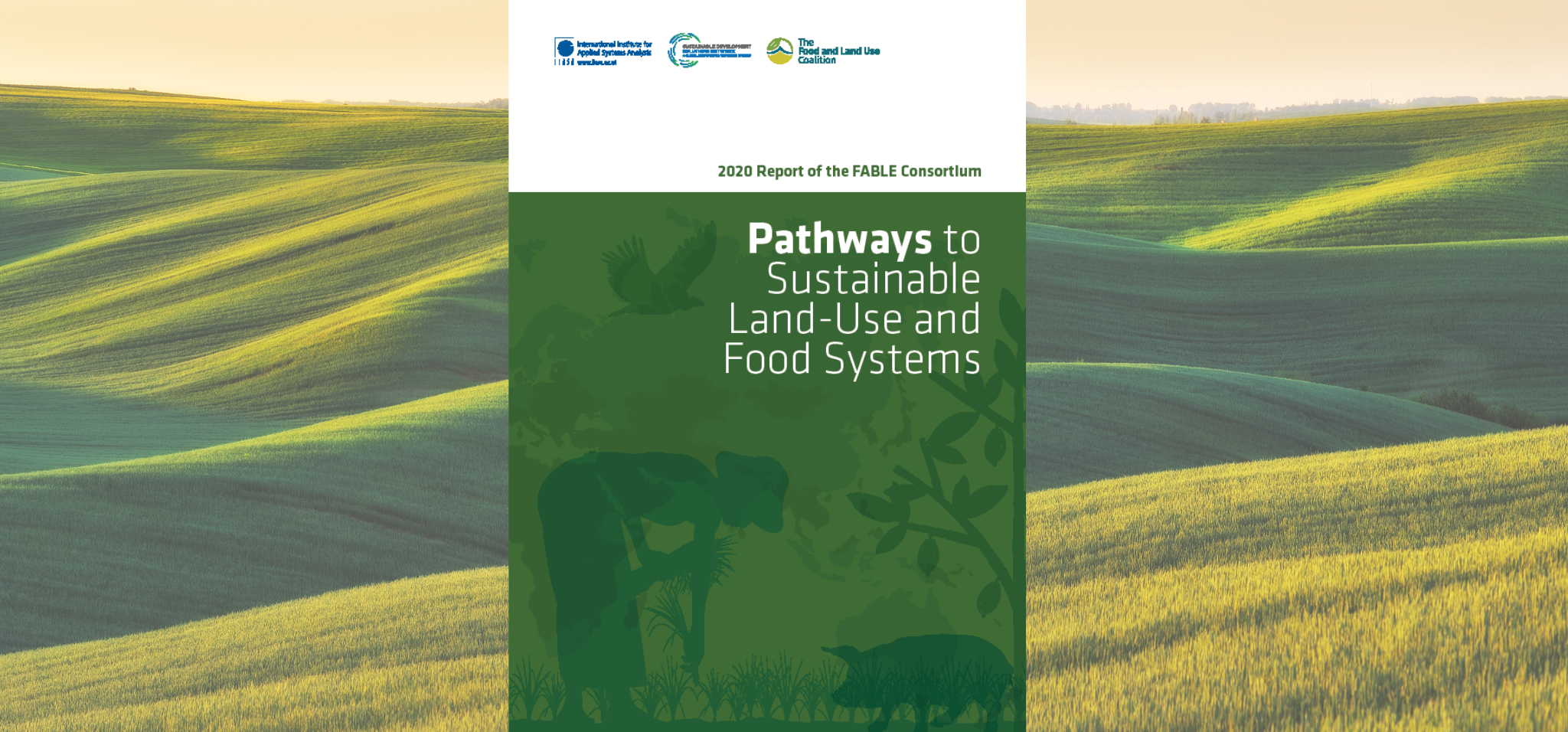
The FABLE report, Pathways to Sustainable Land-Use and Food Systems (2020), presents strategies across the food and land-use systems in the FABLE countries that can meet domestic food security, no net loss of land for biodiversity conservation, zero net deforestation by 2030, and greenhouse gas (GHG) emissions reduction compatible with the Paris Agreement at the global level by 2050.
The FABLE pathways present at least one Current Trends Pathway and one Sustainable Pathway to assess how far and how quickly improved policies can make land-use and food systems sustainable. They were expanded to cover freshwater, future climate-change impacts on crops, a richer discussion of biodiversity targets, and a detailed trade analysis.
Countries have four critical levers to lower the demand for pasture and cropland at the global level and support greater conservation and restoration of ecosystems: dietary shifts towards less meat consumption and less overconsumption of food, sustainable and productive agriculture, improved land-use design for protecting and restoring nature, and rapid reductions in food loss and waste.
The contrast between Current Trends and Sustainable show that the lack of political ambition towards greater sustainability puts the achievement of the objectives of the Paris Agreement, and SDG 15 on the protection, restoration, and sustainable use of terrestrial ecosystems at major risk. The pathways demonstrate that decisive public sector action over the coming years can put countries on a different long-term trajectory.